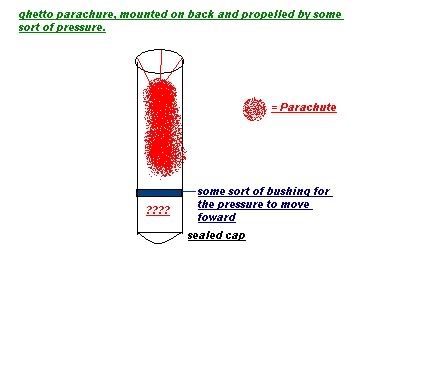Tue Oct 03, 2006 7:43 pm
The force of gravity causes things in free-fall to accelerate. The longer something is falling for, the faster it falls.
In a friction free world, one can find the fall time using this equation:
D=VoT+.5at^2
Where D= displacement, Vo= initial velocity, T= time, a= acceleration,
If you plug the numbers in, you get this: 50ft=0t+.5(-32.2ft/s^2)t^2
Your initial velocity will be zero if you don't jump or anything, so that cancels out that and the first t. If you divide the acceleration by two, you're left with: 50ft=-16.1ft/s(t^2). Divide both sides by -16.1ft/s^2, and you have t^2=3.1s^2, because you can't have negative time. Then take the square root, and you're left with, t=1.8s.
Because I didn't take friction into account, you will be in the air for longer than that.
These seems like a really short time. I'm not positive that my calculations are correct, but I don't think I made any mistakes. If anyone notices anything wrong with those numbers, please tell me.
Last edited by
Shrimphead on Tue Oct 03, 2006 8:03 pm, edited 1 time in total.
Controlled insanity = Genius
Life flies when you're being dumb.











